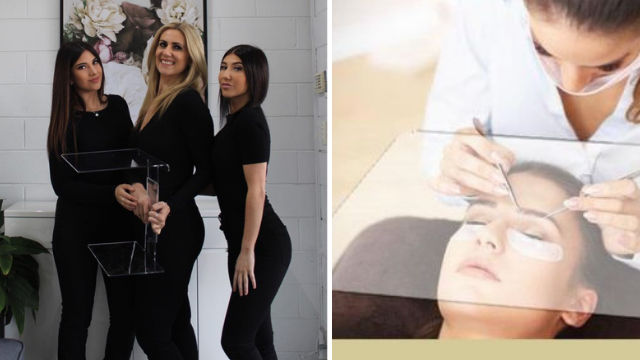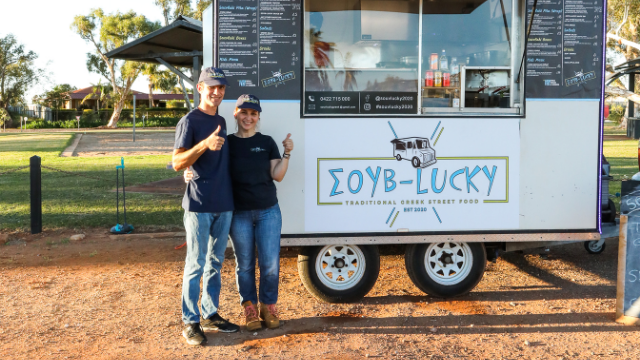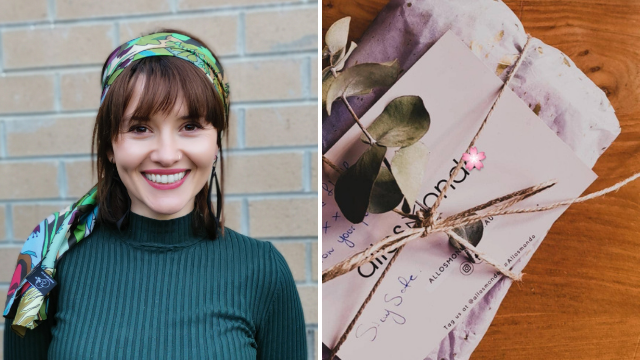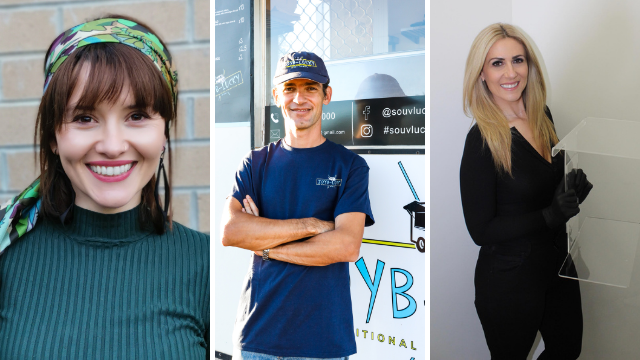By Argyro Vourdoumpa and Andriana Simos.
Coronavirus has brought entire industries to their knees and has hit thousands of small businesses hard around Australia, leaving many without work and an uncertain future.
“More than a third (35%) of Australian businesses expect to find it difficult or very difficult to meet financial commitments over the next three months,” the Australian Bureau of Statistics (ABS) reported in August.
However, these Greek Australian entrepreneurs who launched their start-ups during a global pandemic believe that with challenges also come opportunities.
Joanne Karagiannis, Melbourne
Joanne Karagiannis has been the owner of a beauty salon in Oakleigh, for fifteen years.
Due to the Victorian Government’s restrictions, the salon has been closed for seven months and her sole income is the JobKeeper payment.
“The situation has been extremely difficult emotionally and really stressful. I can’t work but I still have to pay rent, bills, insurance and marketing fees. I can’t even drive to my salon due to the five kilometres radius rule,” Ms Karagiannis said.

Recognizing that the pandemic will change drastically the field of aesthetics and cosmetology worldwide, she decided to find a way to ensure that when she finally returns to work, she and her clients will be safe.
“A new business idea that my daughters and I came up with, is a transparent self-standing barrier, placed between the treatment provider and the client adding an extra layer of protection, for both parties. Our product is called ‘Beauty Shield,’” said Ms Karagianis.
Although a new business is daunting for her, she admits that “one cannot expect to make money without being willing to invest.”
Sofia & Sotiris Moustakas, WA
Five months ago, couple Sofia and Sotiris Moustakas started a mobile Greek street food truck business in Karratha, north Western Australia.
“We had the idea about the van since last year. Back then we could not foresee what would happen. So, we made the investment, bought the equipment and started organising everything.
Then the pandemic hit. By that time, we had spent a considerable amount of money and had to start capitalizing on it as soon as possible,” Mr Moustakas said, explaining that they “felt lucky in a sense as the pandemic was smoother in Western Australia compared to other states.”

“When we started, we used to trade three days a week but soon added one more, because we had a great response and support from the local community.
“As we receive some of our products from Melbourne and Perth we dealt with major delays and sudden price increases. We had to be flexible, come up with solutions and even reduce our profit margins in order to cope,” co-owner, Sofia Moustaka said.
For the owners of ‘Souv-Lucky’, the assistance of their local Chamber of Commerce (Karratha & Districts Chamber of Commerce & Industry) as well as various council initiatives to support small businesses, were crucial.
“If we went back in time, we would have made the same decision. One can learn, adapt and evolve even amidst a pandemic,” conclude Sofia and Sotiris Moustakas.
Ria Georgiadis, Melbourne
For Melbourne-based Ria Georgiadis, the creation of an online store as a side business had been in the plans for over a year; but due to work and life commitments she was unable to allocate the time needed to start it.
As Australia’s second biggest city was going through its first lockdown, Ms Georgiadis realised that she could use the restrictions to her benefit.
“The first order from Greece arrived in March, when the first lockdown started. With COVID I was hesitant to launch an online store but the whole situation contributed positively, both on a personal and a professional level, as I consciously started investing more time in building my corporate identity and promoting my store,” said Georgiadis.

In May, her online store selling women’s bespoke accessories by emerging Greek designers came to life.
“I don’t believe one should wait for the ideal circumstances to start something. We should create the conditions. Coronavirus was a trigger for me and ‘allosmondo’, gave me a purpose.”
So what happens if things don’t unfold as planned?
“Best case scenario the business becomes known. Worst case scenario, I learn something new,” said Ria Georgiadou.
Benefits of starting a business in a pandemic
Jamie Cunningham from SalesUp business coaching in Beechworth, said people who started a business during challenging times such as a global pandemic are forced to ‘think very strategically’.
“Too often when people start businesses, particularly when the economy is strong, the deep strategic thinking is skipped.
“Starting a business now hopefully gives a person the advantage of a very aware mindset. They are less likely to take a strong economy for granted. Versus the person that starts a business in the good times, can quickly come into trouble when the economy has a downturn. The later person has not experienced a downturn and is more likely to assume (largely unconsciously) that sales will just always be there,” he said.

